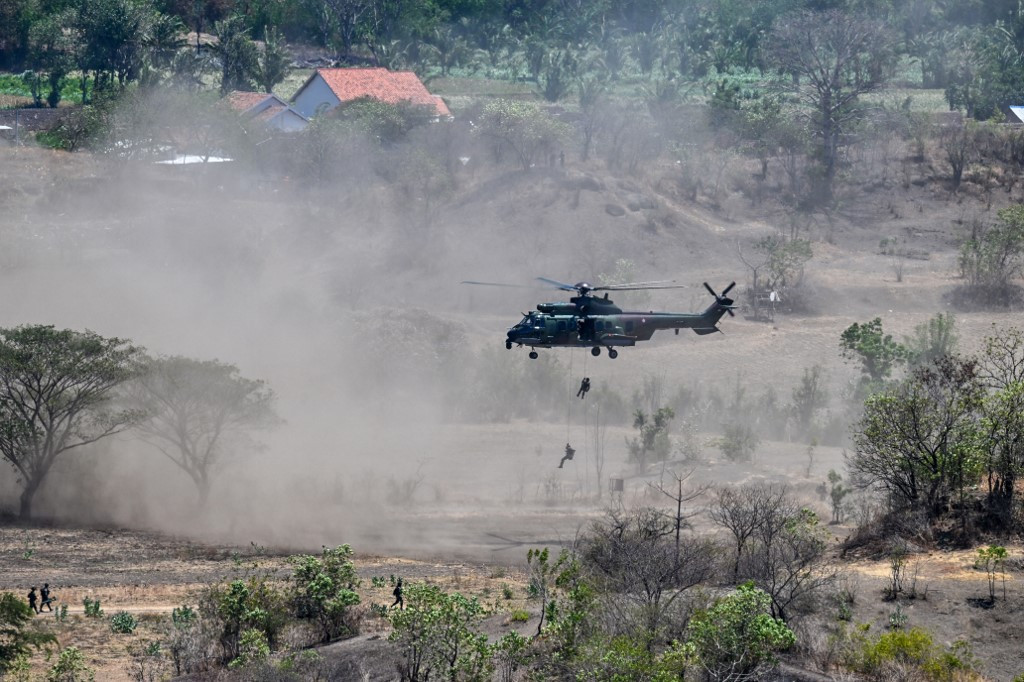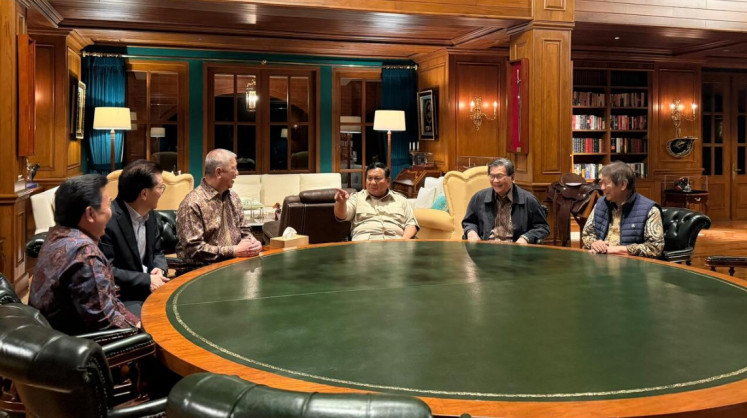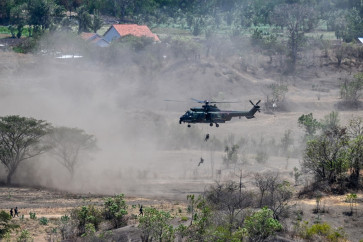Popular Reads
Top Results
Can't find what you're looking for?
View all search resultsPopular Reads
Top Results
Can't find what you're looking for?
View all search resultsUS-China rivalry requires Indonesia to review defense posture
Given the inherent demand for highly compatible and interoperable weaponry systems, the TNI should prioritize exploring acquisitions from a single nation to streamline integration.
Change text size
Gift Premium Articles
to Anyone
 Strategic training: Indonesian Military personnel rappel from the Indonesian Air Force H-225 M Caracal helicopter on Sept. 6, 2024, during the Super Garuda Shield 2024 joint military exercise including Indonesia, Japan, Singapore, Australia, the United Kingdom and the United States, in Situbondo, East Java. (AFP/Juni Kriswanto)
Strategic training: Indonesian Military personnel rappel from the Indonesian Air Force H-225 M Caracal helicopter on Sept. 6, 2024, during the Super Garuda Shield 2024 joint military exercise including Indonesia, Japan, Singapore, Australia, the United Kingdom and the United States, in Situbondo, East Java. (AFP/Juni Kriswanto)
T
he simmering rivalry between the United States and China has taken a new twist, spilling over from trade disputes into broader military competition. Tariff wars and the race for advanced weapons technology, recently visible in the India-Pakistan conflict, are shaping a complex geopolitical environment.
For Indonesia, which is situated at the crossroads of the Indo-Pacific, these developments are far from distant. The shifting dynamics call for a thoughtful recalibration of the country’s defense posture and diplomatic engagement, ensuring that it remains agile and resilient amid great-power tensions.
The US-China contest is not merely a clash of titans but a profound struggle for influence in an increasingly anarchic international system. As Hans Morgenthau, a prominent realist thinker in international relations, posited, “International politics, like all politics, is a struggle for power”.
The friction between these two superpowers, intensified by the tariff war and the race for military technologies in armed conflicts, is reshaping the global order, with significant ramifications for nations like Indonesia.
The year 2025 served as a turning point, highlighting the economic front of this rivalry. The US, under President Donald Trump, imposed a staggering minimum base tariff of 10 percent on nearly all imported goods, specifically targeting countries with substantial trade deficits, predominantly China. This provocative move ignited a tit-for-tat tariff war, culminating in an unprecedented escalation where tariffs soared to 145 percent on Chinese goods and 125 percent on US goods entering China.
This economic strife not only complicates bilateral relations but also reverberates through global supply chains, impacting economies worldwide, including Indonesia’s.
However, the military aspect of this rivalry presented a new and alarming dimension during the recent India-Pakistan conflict. Pakistan's military, equipped primarily with Chinese-made weaponry, could match India's more expensive Western and Russian platforms in a three-day war.


















